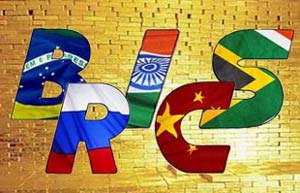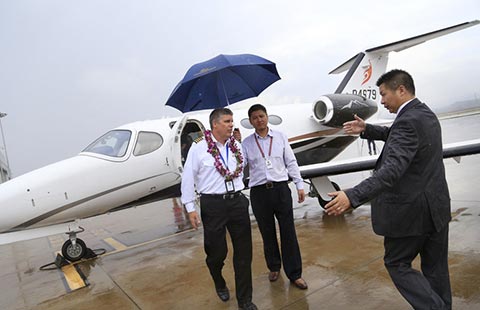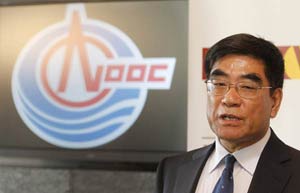BRICS leaders hail outcome of first-day summit
(Xinhua) Updated: 2014-07-16 15:19FORTALEZA, Brazil - Leaders of BRICS countries hailed the outcome of their first-day summit on Tuesday, when four major agreements were signed in key economic areas.
The BRICS, which groups Brazil, Russia, India, China and South Africa, is holding its sixth summit on Tuesday and Wednesday in Brazil's northeastern coastal city of Fortaleza.
The first day of the two-day summit saw the signing of such documents as agreements on establishing the New Development Bank (NDB) and the BRICS Contingent Reserve Arrangement (CRA), the Memorandum of Understanding on Cooperation among BRICS Export Credit and Guarantees Agencies, and the Cooperation Agreement on Innovation within the BRICS Interbank Cooperation Mechanism.
South African President Jacob Zuma said during his speech at the summit that the four agreements marked BRICS countries' strengthened cooperation in financial and economic domains, which would produce tangible results and impact on the lives of their people.
BRICS countries have started a journey of forging strategic cooperation through embarking jointly on tangible projects with key deliverables that will impact positively on their growth and development, Zuma added.
Meanwhile, the South African leader said a proposed BRICS-Africa Council could add an additional dimension to augmenting trade and investment between BRICS members and countries on the African continent.
Zuma said he was looking forward to working with his BRICS colleagues more closely as his country was implementing the National Development Plan, in the spirit of the BRICS partnership for development and progress.
Russian President Vladimir Putin highlighted the setting up of the NDB and CRA, saying that they would help not only BRICS countries themselves, but also many other developing countries.
Putin said the two financial institutions would help developing countries reduce the negative impact of economic fluctuation while implementing their economic policies more effectively.
The Russian president proposed closer contacts in areas such energy safety, mining, culture and education.
Indian Prime Minister Narendra Modi said that BRICS countries have their own advantages and are complementary to each other, describing the BRICS bloc as a unique and crucial platform for the five emerging economies.
The group has great influence not only over the five member countries, but also the rest of the world, especially the developing countries, since it addresses common concerns faced by the world, such as poverty, food security, and climate change, Modi said.
He called on the BRICS countries to learn from each other while promoting exchanges of different levels and increasing people-to-people contacts, especially between the youth.
 |
 |
| BRICS seeks new paths to develop | Shanghai most likely headquarters for BRICS development bank |
- Urban farming in a shopping mall
- Environment authorities blacklist four companies
- Chinese-made trains head for Latin America
- Lottery money to fund mental health facilities
- Chilling house market cools land sales
- China's H1 growth up 7.4%, showing economic resilience
- China's Wechat, Easy Taxi launch taxi-hail app in Singapore
- Mercedes shows off new 'smarts'
















